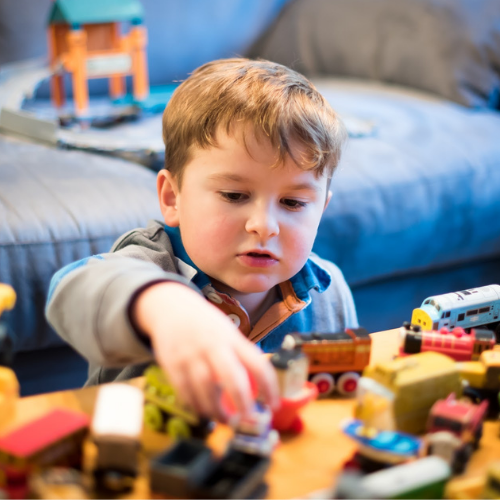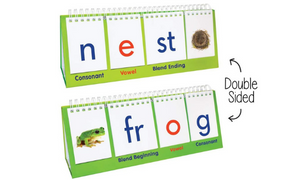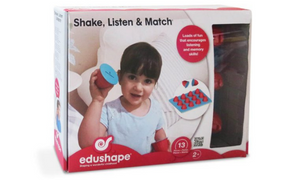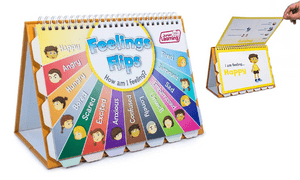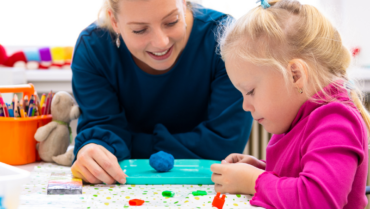How to spot developmental delays in children
There are many types of developmental delays in children. Some of these can be easy to spot, while others are more difficult to detect. However, if you’re worried about your child’s development there are some tell-tale signs you can look out for. Here’s some of the most common development delays in children and how you can spot them.
Developmental delays in babies

Featured Product: Galaxy Star and Sound Projector
Used by doctors and paediatricians to assess a child’s progress, developmental milestones are the functional skills that most children learn by a specific age. The age range for milestones is variable and can differ from each child. If your child is a bit behind in their milestones this often isn’t something to worry about – but if they’re missing lots of their milestones, there could be something else at play.
The earliest signs of developmental delay in babies are difficulties with physical skills. Babies will usually develop new physical skills from the head down – learning to hold their head up, roll over, sit without support, crawl, and walk. So, if your child is having significant difficulties with these tasks, it could be a sign of developmental delay. Possible signs of developmental delay for children aged 3 months – 18 months old include:
- Not moving both arms or both legs
- Not holding their own head up by 3-4 months
- Aren’t reaching for objects by 6 months
- Don’t sit well on their own by 10 months
- Don’t want to stand up by 12 months
- Don’t seem to understand anything you say by 18 months
Speech delays in toddlers
Featured Product: Blend Flips – Speech Support
One of the most common developmental delays is language and speech. In fact, one in five children will learn to talk later than most other children their age. Speech and language is a vital skill, especially as your child gets older, so it’s important to support them to develop their language skills and consider seeking professional help when needed. Sometimes a child will need speech therapy to develop their speech skills, while other times language delays can be a sign of other conditions or issues such as hearing loss, Autism, or learning difficulties.
Some common signs of speech delays in toddlers include:
- Continues to ‘babble’ without forming words or phrases
- Is particularly difficult to understand
- Uses words or phrases that don’t match the situation
- Is unable to use word to ask for what they want
- Only parrots what others say e.g., scripts from TV
Cognitive delays in children
Featured Product: Shake, Listen and Match Memory Game
Cognitive delays are often difficult to spot in young children and become more noticeable once a child reaches school. Children with cognitive delays may have difficulty processing information, communicating with others, and learning new things. A cognitive delay is usually caused by trauma or abnormalities in the brain, such as meningitis, seizures, or chromosome disorders, although it is common for there to be no known reason for cognitive delays in children.
Some signs of cognitive delay include:
- Inability to remember details or recall events
- Lack of curiosity
- Difficulties understanding social cues
- Lack of age-appropriate self-help skills
- Difficulties learning new things
Children with cognitive delays are at a higher risk of struggling with school and learning, as their intellectual functioning may not keep up with peers. For this reason, children are more likely to need ongoing support than they would with other types of developmental delays. There is also a higher risk of other conditions being involved such as Autism, Downs Syndrome, or Fragile X Syndrome – talk to your doctor if you’re at all concerned, and they will be able to organise for a formal assessment of your child.
Global Developmental Delay
Featured Product: Feeling Flip Book
When a child is delayed in 2 or more areas of development, they may be diagnosed with Global Developmental Delay (GDD). These delays will be long lasting over a period of 6 months or more and can be caused by a number of factors including premature birth, genetic conditions, and environmental factors. However, in many children the cause of delay is unknown.
Children with GDD may be delayed in any of the following development areas:
- Speech and language
- Gross motor skills (crawling, walking etc)
- Fine motor skills (drawing, holding toys etc)
- Cognition and learning
- Social interaction
- Emotional regulation
- Daily living skills (dressing themselves, toileting etc)
GDD affects about 1-3% of children. While it is a recognised disability on its own, often children will receive a different diagnosis as they grow older, such as Autism or Fragile X Syndrome, however this is not always the case. Early intervention for children with Global Developmental Delay is very beneficial, with specific support for the areas of development needed e.g., speech therapy for speech delays or occupational therapy for cognitive and motor delays. In some children, the right support could result in overcoming their developmental delay, while for others, ongoing support may be required.
Developmental delays can be worrisome, but knowing what to look out for means your child can get support early. The good news is that there are also countless toys that can help build developmental skills including communication, cognitive ability, social skills, and motor skills. Check out our website today for our extensive range of sensory toys or contact us for more detailed information on how our toys can help your child.

